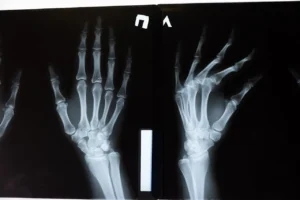
New Research Shows High Accuracy of Precivity™ Blood Biomarkers in the Evaluation of Brain Amyloid in Pre-Clinical Alzheimer’s Disease
C2N Diagnostics, LLC (C2N), a leader in advanced brain health diagnostics, announced new findings that its blood biomarkers Aβ42/Aβ40 (amyloid-beta) and p-tau217/np-tau217 (%p-tau217, or phosphorylated tau-217 divided by non-phosphorylated tau-217)1 are helpful in improving the speed and efficiency of anti-amyloid prevention trials in individuals with pre-clinical Alzheimer’s disease. Both of these biomarkers are included in the company’s commercially available Precivity™ blood tests, which help healthcare providers determine the presence of amyloid plaques in the brain, a hallmark sign of Alzheimer’s disease, and aid in medical management and treatment decisions.
C2N analyzed the biomarkers using its high-resolution mass spectrometry (MS) analytical platform as part of this study. These results were highlighted in the article “Plasma Aβ42/Aβ40 and phospho-tau217 concentration ratios increase the accuracy of amyloid PET classification in preclinical Alzheimer’s Disease,” published today in the online edition of the journal Alzheimer’s & Dementia®. Robert Rissman, Ph.D., Professor of Physiology and Neuroscience and the W.M. Keck Endowed Professor in Medicine at the University of Southern California, led the study.
The purpose of this study was to determine the usefulness of MS-based measurements of plasma p-tau217, np-tau217, p-tau181, np-tau181, their concentration ratios, and Aβ42/Aβ40 ratio measurements to detect brain amyloid pathology versus the reference standard amyloid PET (positron emission tomography) in cognitively unimpaired individuals. The study evaluated 1,080 baseline plasma samples of participants who were recruited and screened for enrollment into the AHEAD 3-45 study of the anti-amyloid therapy lecanemab. All participants underwent amyloid PET scans, and 340 (32%) participants had positive PET scan findings (defined as Centiloid scale > 20). This study cohort was derived from cognitively unimpaired, high-risk individuals eligible for the AHEAD 3-45 study evaluating lecanemab.
Among the individual biomarkers evaluated, plasma p-tau217/np-tau217 had highest accuracy followed next by Aβ42/Aβ40 and last by p-tau181/np-tau181 for identifying amyloid PET status. Each of the biomarker ratio measures more robustly identified amyloid PET status when compared to their individual absolute concentration values of p-tau217, Aβ42, and p-tau181.
The researchers wrote that “the best performance as indicated by AUC [Area Under the Receiver Operating Curve] was achieved when plasma p-tau217 and Aβ42/Aβ40 ratios were combined in a model that predicted cerebral amyloid PET status.” The combination of plasma p-tau217/np-tau217 and Aβ42/Aβ40, measured against amyloid PET achieved an AUC performance of 0.94 (95% CI; 0.93 – 0.96) and that performance marginally improved when also including age and APOE genetic status into the production model (AUC 0.95; 0.94-0.96).
“The cost and burden for researchers and research volunteers for studies into Alzheimer’s disease continues to rise. Any opportunity to streamline the recruitment and enrollment process is helpful given this scenario,” said Dr. Joel Braunstein, C2N’s CEO and president. “The blood biomarkers with the highest performance in the study are the biomarkers highlighted in the Precivity blood tests, demonstrating the application of these biomarkers for important research purposes. In addition, healthcare specialists are currently using these biomarkers in our Precivity blood tests to help in the clinical evaluation of patients aged 55 years and older with concerns of cognitive impairment.




